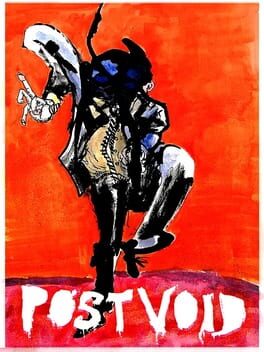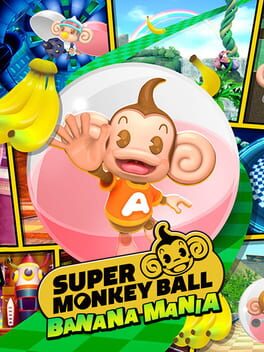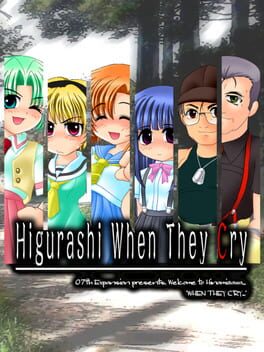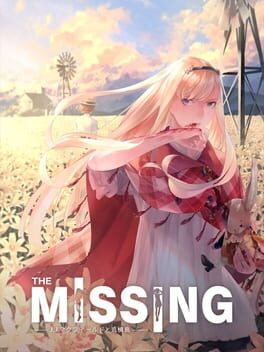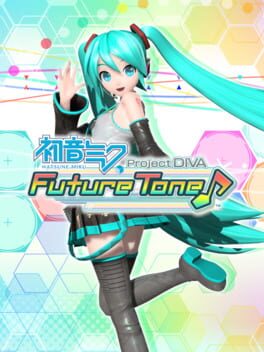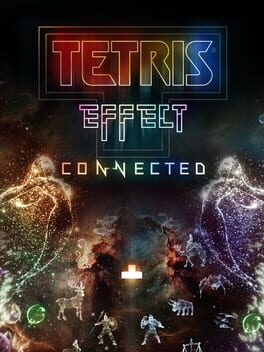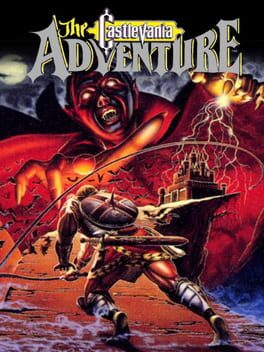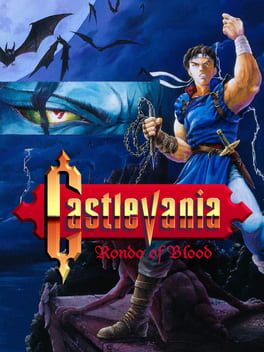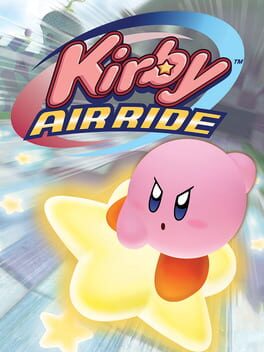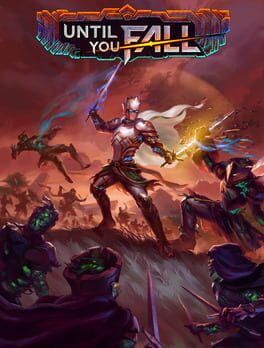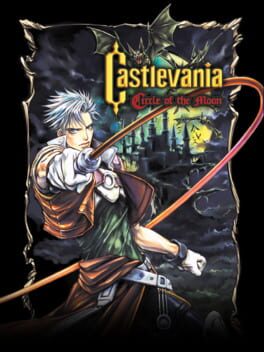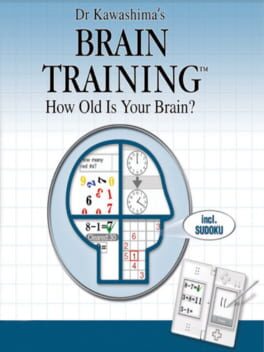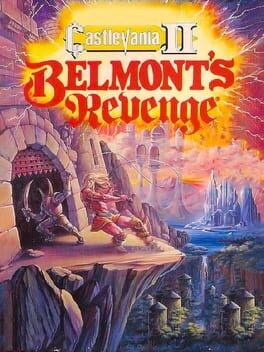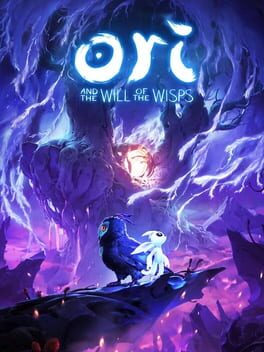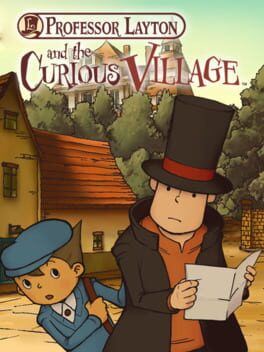AutumnLily
2020
It's very strange that in a bunch of the toughest levels I completed in Super Monkey Ball: Banana Mania it felt like controlling the camera was almost more important than controlling the stage itself, and it's also weird that the story mode will have large spikes in difficulty nested between other fairly straightforward levels; I found myself wishing the levels were reordered so that they had something better resembling a difficulty curve.
That said the game was a bunch of fun. I think the levels that require intense precision are not very interesting and can land on the bad side of frustrating (any level that asks you to go in a straight line down a very thin path falls into this), but the levels that demand you wrap your head around what the physics engine is doing, that ask you to iteratively form a plan and execute it well, or that just present a fun little idea to engage with, are generally a blast. In a few different instances during my story mode playthrough I would get stuck on a level for 10 or 15 minutes only to find finally completing it felt very rewarding and like all my hard work had finally clicked perfectly into place.
That said the game was a bunch of fun. I think the levels that require intense precision are not very interesting and can land on the bad side of frustrating (any level that asks you to go in a straight line down a very thin path falls into this), but the levels that demand you wrap your head around what the physics engine is doing, that ask you to iteratively form a plan and execute it well, or that just present a fun little idea to engage with, are generally a blast. In a few different instances during my story mode playthrough I would get stuck on a level for 10 or 15 minutes only to find finally completing it felt very rewarding and like all my hard work had finally clicked perfectly into place.
Higurashi is at its strongest when it is concerned with trauma, both on a personal and a communal level. When it understands the effects trauma can have on someone, and when it dearly wishes to find some way out of the cycles of violence that can so often cause traumatised individuals, groups and generations to, knowingly or unknowingly, condemn others to trauma also. Whilst these are words that don't always apply to Higurashi on a broader level, in its exploration of these themes Higurashi feels both mature and astute; there are so many moments when someone's reaction to the trauma they've experienced or are experiencing feels painfully, heartbreakingly, incisively on-point.
This element of Higurashi is so successful in part because Ryukishi has a deep empathy for his characters. He has an unwillingness to wholly discard someone for their misdeeds, and a deep desire to look inside people and see what makes them tick, what makes people choose the paths they do, and wants you to understand this also. There's one particular instance where I can't bring myself to be onboard with his hardline approach of "hate the sin and not the sinner", and this approach feels to me incongruous with the fact that there are characters in the story that are just wholly irredeemable (Satoko's uncle, for instance), but it's hard to deny there's something compelling about how much Ryukishi cares, and him asking you to try and care just a little bit more too.
Beyond all of this, Higurashi is concerned with generational divides, small village cultures on the edge of being wiped out by modernisation and a fury at the heartlessness of bureaucracy and how it leaves people to drown, with paranoia and fear and the kind of deep, unrelenting love that would have you tear apart everything for someone, with hope and despair and miracles. Higurashi is also concerned with friendship, and despite "the power of friendship" being one of the most worn out and uninspired themes for anime, manga and (I assume) visual novels it actually manages to make such a deeply impassioned plea towards this that I was just entirely hooked in by Higurashi's beating heart.
These are the highs of Higurashi, but it is also ultimately an often-uneven experience. There is a small amount of content here that is indefensible, and which I'm shocked I don't see more condemnation of. Basically any scene set in Angel Mort is just a lock to star creepy sexualisation of teenage girls played up for humour and treated as just completely acceptable, multiple side-character adults in the story make occasional creepy comments along these lines also, and a key character, Irie, is obsessed with the idea of putting one of the game's youngest characters in a maid outfit and marrying her. This content accounts for maybe 3% of the game if I had to guess, so a very minor amount, but it's all just wretched. It's so bizarre too because elsewhere Higurashi is able to render its women with remarkable depth, taking common character archetypes and ultimately subverting just about every expectation you enter with about them in ways that feel natural and which let you really understand how each character ticks by the end of the story, and yet despite this it just can't consistently Be Normal about them at all and just has to have its creepy moments. A couple of the Angel Mort scenes genuinely made me feel a bit ill to read and I would not blame someone for just refusing to read Higurashi because of this content.
More broadly, Higurashi is also desperately in need of a harsher editor at points. Higurashi's eight chapters combined are over one and a half million words long, or longer than reading the entire Lord of the Rings trilogy three times over, and took me 100 hours to finish (which I gather is faster than most people, even). During my readthrough I had multiple extended breaks, which is partially just that my life has been busy this past year, but partially that Higurashi has a habit of stretching out its slice-of-life scenes, confused metaphor-laden inner-monologues and moments of hopeless despair far beyond their point being effectively made. My final break from Higurashi lasted four months, only for me to discover upon my return that the final chapter, beyond a certain point, starts to descend into what feels at times like third-rate fanfiction, and it left me wishing that Ryukishi knew how to communicate his story a little bit more succinctly rather than stretching things on beyond the point where all the intrigue had been quelled and all the questions answered.
A mixed bag, then, but one with a lot to say and a lot it believes in, with an amazing sense of mystery, and some lovable characters that have a lot more going on that you first suspect. Wildly imperfect, at times exhausting or even just reprehensible, but fascinating and with a lot of heart behind its horror. I can't say that I would ever recommend Higurashi, but I did get a lot from the experience.
This element of Higurashi is so successful in part because Ryukishi has a deep empathy for his characters. He has an unwillingness to wholly discard someone for their misdeeds, and a deep desire to look inside people and see what makes them tick, what makes people choose the paths they do, and wants you to understand this also. There's one particular instance where I can't bring myself to be onboard with his hardline approach of "hate the sin and not the sinner", and this approach feels to me incongruous with the fact that there are characters in the story that are just wholly irredeemable (Satoko's uncle, for instance), but it's hard to deny there's something compelling about how much Ryukishi cares, and him asking you to try and care just a little bit more too.
Beyond all of this, Higurashi is concerned with generational divides, small village cultures on the edge of being wiped out by modernisation and a fury at the heartlessness of bureaucracy and how it leaves people to drown, with paranoia and fear and the kind of deep, unrelenting love that would have you tear apart everything for someone, with hope and despair and miracles. Higurashi is also concerned with friendship, and despite "the power of friendship" being one of the most worn out and uninspired themes for anime, manga and (I assume) visual novels it actually manages to make such a deeply impassioned plea towards this that I was just entirely hooked in by Higurashi's beating heart.
These are the highs of Higurashi, but it is also ultimately an often-uneven experience. There is a small amount of content here that is indefensible, and which I'm shocked I don't see more condemnation of. Basically any scene set in Angel Mort is just a lock to star creepy sexualisation of teenage girls played up for humour and treated as just completely acceptable, multiple side-character adults in the story make occasional creepy comments along these lines also, and a key character, Irie, is obsessed with the idea of putting one of the game's youngest characters in a maid outfit and marrying her. This content accounts for maybe 3% of the game if I had to guess, so a very minor amount, but it's all just wretched. It's so bizarre too because elsewhere Higurashi is able to render its women with remarkable depth, taking common character archetypes and ultimately subverting just about every expectation you enter with about them in ways that feel natural and which let you really understand how each character ticks by the end of the story, and yet despite this it just can't consistently Be Normal about them at all and just has to have its creepy moments. A couple of the Angel Mort scenes genuinely made me feel a bit ill to read and I would not blame someone for just refusing to read Higurashi because of this content.
More broadly, Higurashi is also desperately in need of a harsher editor at points. Higurashi's eight chapters combined are over one and a half million words long, or longer than reading the entire Lord of the Rings trilogy three times over, and took me 100 hours to finish (which I gather is faster than most people, even). During my readthrough I had multiple extended breaks, which is partially just that my life has been busy this past year, but partially that Higurashi has a habit of stretching out its slice-of-life scenes, confused metaphor-laden inner-monologues and moments of hopeless despair far beyond their point being effectively made. My final break from Higurashi lasted four months, only for me to discover upon my return that the final chapter, beyond a certain point, starts to descend into what feels at times like third-rate fanfiction, and it left me wishing that Ryukishi knew how to communicate his story a little bit more succinctly rather than stretching things on beyond the point where all the intrigue had been quelled and all the questions answered.
A mixed bag, then, but one with a lot to say and a lot it believes in, with an amazing sense of mystery, and some lovable characters that have a lot more going on that you first suspect. Wildly imperfect, at times exhausting or even just reprehensible, but fascinating and with a lot of heart behind its horror. I can't say that I would ever recommend Higurashi, but I did get a lot from the experience.
I choose to believe that Swery's intentions were good with this game, and I'm glad it seems to have genuinely helped some people, but I'm so tired of trans stories being portrayed just through the struggles of dysphoria rather than through the growing confidence and happiness that transitioning can lead to, through the pain wrought upon trans people by society rather than through found family and the comfort of finding others who understand you. The overwhelmingly vast majority of the game's runtime is spent deep in a mire of sadness (that read to me as almost comically over-the-top edgy at its worst points), and for a story that claimed to be about regeneration I wish there was more joy to be found here.
It also honestly just feels egregious to me that the primary gameplay mechanic of a story about a trans woman revolves around solving puzzles by choosing to amputate, immolate or just generally tear your body to pieces. This is problematic both because of how eerily reminiscent it feels of various TERF talking points (how they refer to gender-affirming surgeries as "mutilation"), and also because I don't want to be forced to hear our trans protagonist's leg bones crunch apart for the fiftieth time in the game. Trans people shouldn't be forced through the level of extreme pain this game asks of its protagonist just to be allowed to opportunity to finally heal, grow and be happy.
It also honestly just feels egregious to me that the primary gameplay mechanic of a story about a trans woman revolves around solving puzzles by choosing to amputate, immolate or just generally tear your body to pieces. This is problematic both because of how eerily reminiscent it feels of various TERF talking points (how they refer to gender-affirming surgeries as "mutilation"), and also because I don't want to be forced to hear our trans protagonist's leg bones crunch apart for the fiftieth time in the game. Trans people shouldn't be forced through the level of extreme pain this game asks of its protagonist just to be allowed to opportunity to finally heal, grow and be happy.
I love how visually dense this game is, notes flying all over the screen from any possible direction whilst in the background flashy music videos featuring Miku herself play, and yet how the game manages to clearly communicate itself despite this visual density; the notes moving towards their respective pads, spinning clocks on the pads ticking down to the moment you need to press the corresponding button, distances between these pads indicating roughly how big the gaps will be between the notes in the song, and the beat of the music itself, all serve to provide information as to when exactly you're going to have to press those buttons, every single element of this a necessary part of the equation at some point but which indicators are the right ones to rely on in any particular moment is very contextual, depending on exactly which part of this informational cacophony is going to be the easiest bit to parse, something that you have to be able to instinctively adjust to moment-to-moment.
I also love how you can play notes on either side of the controller. The notes presented on-screen will always describe a specific button on a specific side of the controller, and typically act as solid suggestions for how you should be doing things, but the two sides of the controller itself are functionally identical when it comes to these inputs so once you get comfortable with the controls it starts to make sense to shift notes from one side to the other, ignoring what the game says and turning that triangle note into an up note for example, in moments where it makes things easier for you. Eventually this becomes so second nature that you stop seeing that triangle note as a triangle note in the first place as you freely flow back and forth from side to side; it's a really satisfying way for the game to work mechanically, and that evolution with how you approach and see it is a lot of fun to go through.
So mechanically this game is incredibly sound and among the better rhythm games I've encountered. Despite that I found myself falling off of Project Diva Future Tone quite fast? Part of the problem is a thing I often struggle at with arcade-y videogames which is that I don't find seeking a higher score particularly motivating, and when there's nothing resembling a campaign mode to work through then that's all there really is to do here; try and get better, complete higher difficulties and get those higher scores whilst doing essentially the same thing over and over. It's not really for me. I also say this as someone who has only a passing familiarity with Hatsune Miku, and who hasn't really listened to said music in several years, but I wish the song list here was more aggressively curated. There's over 200 songs here, and some of them are great, but there's also a lot of stuff that reads as filler to my unfamiliar ears and at times this can lead to the experience of playing this game turning into a bit of a blur for me. All of this means that despite my strong initial impressions of Project Diva Future Tone I just haven't played that much of it and struggle to imagine playing that much more.
I also love how you can play notes on either side of the controller. The notes presented on-screen will always describe a specific button on a specific side of the controller, and typically act as solid suggestions for how you should be doing things, but the two sides of the controller itself are functionally identical when it comes to these inputs so once you get comfortable with the controls it starts to make sense to shift notes from one side to the other, ignoring what the game says and turning that triangle note into an up note for example, in moments where it makes things easier for you. Eventually this becomes so second nature that you stop seeing that triangle note as a triangle note in the first place as you freely flow back and forth from side to side; it's a really satisfying way for the game to work mechanically, and that evolution with how you approach and see it is a lot of fun to go through.
So mechanically this game is incredibly sound and among the better rhythm games I've encountered. Despite that I found myself falling off of Project Diva Future Tone quite fast? Part of the problem is a thing I often struggle at with arcade-y videogames which is that I don't find seeking a higher score particularly motivating, and when there's nothing resembling a campaign mode to work through then that's all there really is to do here; try and get better, complete higher difficulties and get those higher scores whilst doing essentially the same thing over and over. It's not really for me. I also say this as someone who has only a passing familiarity with Hatsune Miku, and who hasn't really listened to said music in several years, but I wish the song list here was more aggressively curated. There's over 200 songs here, and some of them are great, but there's also a lot of stuff that reads as filler to my unfamiliar ears and at times this can lead to the experience of playing this game turning into a bit of a blur for me. All of this means that despite my strong initial impressions of Project Diva Future Tone I just haven't played that much of it and struggle to imagine playing that much more.
Saying I've never really got Tetris sounds absurd, after all it carries with it this aura of having existed forever, being this fundamental timeless entity, but the reality is I simply see no reason to sit down and grind out high scores in games. This isn't the death knell of every arcade game, there's plenty of appeal to many of them simply from getting through all of their levels for the first time and calling that it, but Tetris is a suitably monotone experience that I kind of feel like I've seen what there is to see after 15 minutes of playing and so I move on.
This is a simplification of course, and there is more to see in Tetris; put in enough time investment and you'll start to briefly enter flow states, and so too you end up experiencing the tetris effect as everything just starts naturally clicking and you stop having to think quite so actively. Tetris Effect is the first time I've really understood this; partly because all the different music, visuals and associated vibes to be seen in the game give a good motivation to keep playing beyond the first hour or two, but also because, for me at least, the intense and stunning audio-visual elements are perfect for helping encourage me to slip into those flow states where you so naturally find yourself seamlessly planning a whole move ahead, your fingers effortlessly shoving the pieces where you planned for them to go whilst your eyes scan around figuring out that next move in advance. It's immensely satisfying when all of this just starts to come together.
I'm still not in love with Tetris, and I found myself putting down Tetris Effect for good once I'd completed the hard mode campaign, but I am thankful that I do finally get the appeal now.
This is a simplification of course, and there is more to see in Tetris; put in enough time investment and you'll start to briefly enter flow states, and so too you end up experiencing the tetris effect as everything just starts naturally clicking and you stop having to think quite so actively. Tetris Effect is the first time I've really understood this; partly because all the different music, visuals and associated vibes to be seen in the game give a good motivation to keep playing beyond the first hour or two, but also because, for me at least, the intense and stunning audio-visual elements are perfect for helping encourage me to slip into those flow states where you so naturally find yourself seamlessly planning a whole move ahead, your fingers effortlessly shoving the pieces where you planned for them to go whilst your eyes scan around figuring out that next move in advance. It's immensely satisfying when all of this just starts to come together.
I'm still not in love with Tetris, and I found myself putting down Tetris Effect for good once I'd completed the hard mode campaign, but I am thankful that I do finally get the appeal now.
Unsure what is the most distressing here; your whip being completely downgraded any time you take even the slightest bit of damage, the truly heinous game feel that makes even walking feel like you're half-heartedly dragging yourself through sludge, or the strings of multiple frame-perfect jumps in a row even in the first level of the game.
I love everything about this game, but especially Maria; disparagingly referred to by some as this game's easy mode, when the reality is her more free flowing movement just tests a very different skill-set to Richter whilst acting as the perfect bridge-point between the rigid, planned-out pathing of the Classicvanias and the more fluid motion we'd come to see from Symphony of the Night onwards. Whilst I can respect the strict jump arcs and very intentional movement of the older Classicvanias for what it is, I have to admit I find Maria's more modern movement sensibility here just much more fun to play with in basically every regard.
Shout-out to the kitschy cut-scenes and hyper-kitschy voice acting, and especially the orders of magnitude more kitschy that these get when you're playing as Maria (that ending, gods), and a bonus special shout-out to the stage names which are almost all just metal as hell (Dinner of Flames; The Vengeful King of Bloodshed; Atop the Corpses of Thy Brethren; Hear Now the Requiem of Blood).
Shout-out to the kitschy cut-scenes and hyper-kitschy voice acting, and especially the orders of magnitude more kitschy that these get when you're playing as Maria (that ending, gods), and a bonus special shout-out to the stage names which are almost all just metal as hell (Dinner of Flames; The Vengeful King of Bloodshed; Atop the Corpses of Thy Brethren; Hear Now the Requiem of Blood).
2003
2020
Incredibly uninspired roguelite that both has no personality with the same few generic mobs and bland locations repeated ad nauseum absent of any reason to care about what's happening, and that leans into the worst traits of roguelites (many of the upgrades you find on runs amount to just soullessly making numbers go up; an over-emphasis on grinding for meta-progress).
I like the physicality of VR enough that maybe I'd be able to forgive some of these problems if the actual moment-to-moment gameplay was more enjoyable, however; turning round and moving towards enemies feels very awkward, any time you're fighting more than one enemy at once is hell as the game simply isn't built for it, due to this previous problem any time there's more than one enemy near you there's a constant anxiety that the game will make the second enemy engage you in the middle of combat, too often the combat feels like random flailing when you're not being asked to actively parry, occasionally attacks just won't register, once dodging is introduced to the mix it's far too easy for the dodge and parry indicators to be lost amongst the visual's intense love of bloom.
I didn't play much and it's possible some of these problems improve after a while, or that some of the later content is more engaging, but wow this experience sucked.
I like the physicality of VR enough that maybe I'd be able to forgive some of these problems if the actual moment-to-moment gameplay was more enjoyable, however; turning round and moving towards enemies feels very awkward, any time you're fighting more than one enemy at once is hell as the game simply isn't built for it, due to this previous problem any time there's more than one enemy near you there's a constant anxiety that the game will make the second enemy engage you in the middle of combat, too often the combat feels like random flailing when you're not being asked to actively parry, occasionally attacks just won't register, once dodging is introduced to the mix it's far too easy for the dodge and parry indicators to be lost amongst the visual's intense love of bloom.
I didn't play much and it's possible some of these problems improve after a while, or that some of the later content is more engaging, but wow this experience sucked.
It's not Circle of the Moon's fault that it had to follow in the foot-steps of Symphony of the Night, nor that it had to be an early Game Boy Advance title, but both those things are very much the case. Gone is the distinct personality each area held in Symphony, always leaving you excited to see what they're going to do next, instead replaced with a collection of copy-paste hallways and stairways full of increasingly tankier reskins of the enemies you've been fighting all game long. I never thought I'd be relieved to see an extremely basic box-pushing puzzle, but I'll take just about anything to break up the monotony.
This game also brings out the worst elements Metroidvanias can have. Checking the map every 15 seconds as you follow the route from A to B, undergoing huge amounts of back-tracking when you gain a new ability only to be rewarded with an additional 10MP, the game secretly being very linear with a clear intended route for progression and almost no option to sequence-break it, seldom warp points shoved in the most awkward corners of the map meaning that you'll spend a lot of time back-tracking through the same places over and over. A lot of this would be less of an issue if the game world or level design invited my curiosity, but it sadly does not, and the fact that running requires you to double-top a direction makes all the back-tracking even more unpleasant (my thumb is actually sore from this after my final 3 hour session finishing this game off).
The DSS system is also quite disappointing. Some of the abilities it gives you access to are legitimately quite cool, but in order to gain these spells you need to collect cards that are rare drops from enemies; I focused on making my luck stat as high as possible to try and get as many of these cards as possible and yet ended the game only being able to cast 15 of the 100 total spells. I really wanted to see more of what I could do with the magic system but the game just never gave me the chance.
Despite all of this the game was honestly fine. Castlevania's aesthetic is so strong that even here, where it's not being used to its full potential, I still found myself enjoying this aspect a decent amount, and slowly filling out the castle, finding horrifying boss designs, and watching your movement pool grow is satisfying enough, even amidst everything else that is wrong with the game, that I can't really say that Circle of the Moon is bad.
This game also brings out the worst elements Metroidvanias can have. Checking the map every 15 seconds as you follow the route from A to B, undergoing huge amounts of back-tracking when you gain a new ability only to be rewarded with an additional 10MP, the game secretly being very linear with a clear intended route for progression and almost no option to sequence-break it, seldom warp points shoved in the most awkward corners of the map meaning that you'll spend a lot of time back-tracking through the same places over and over. A lot of this would be less of an issue if the game world or level design invited my curiosity, but it sadly does not, and the fact that running requires you to double-top a direction makes all the back-tracking even more unpleasant (my thumb is actually sore from this after my final 3 hour session finishing this game off).
The DSS system is also quite disappointing. Some of the abilities it gives you access to are legitimately quite cool, but in order to gain these spells you need to collect cards that are rare drops from enemies; I focused on making my luck stat as high as possible to try and get as many of these cards as possible and yet ended the game only being able to cast 15 of the 100 total spells. I really wanted to see more of what I could do with the magic system but the game just never gave me the chance.
Despite all of this the game was honestly fine. Castlevania's aesthetic is so strong that even here, where it's not being used to its full potential, I still found myself enjoying this aspect a decent amount, and slowly filling out the castle, finding horrifying boss designs, and watching your movement pool grow is satisfying enough, even amidst everything else that is wrong with the game, that I can't really say that Circle of the Moon is bad.
A dramatic improvement over Castlevania: The Adventure right up until you reach the end-game at which point it descends into the same miserable design that the NES Castlevanias suffer from in their late-game also. All of the last three bosses are absurdly difficult in an explicitly unfair way, requiring near-pixel-perfect memorisation and execution, with the final boss being hellish even with aggressive usage of save states.
It's a shame as there's some legitimately solid design up until that point including a creative range of mechanics and gimmicks, and about as convincing a replication of the Castlevania aesthetic as you'd ever manage to make on the Game Boy. Much like the original Castlevania I just can't imagine ever stomaching this end-game again for the sake of experiencing the good stuff that is going on here however.
It's a shame as there's some legitimately solid design up until that point including a creative range of mechanics and gimmicks, and about as convincing a replication of the Castlevania aesthetic as you'd ever manage to make on the Game Boy. Much like the original Castlevania I just can't imagine ever stomaching this end-game again for the sake of experiencing the good stuff that is going on here however.
I'm in the minority in actually preferring the original Ori game, even if only very slightly. On some level it's a weird conclusion to come to as Ori and the Will of the Wisps is just straight up better in a lot of ways; the movement pool is expanded, reintroduces the old abilities in swift fashion and many of the new abilities are enjoyable too, the chase sequences are much less frustrating due to being quite a bit easier to sight-read than in the first game, the game embraces being a Metroidvania rather than doing the awkward straddling of genres that Ori 1 did, the awful save system from the first game has been scrapped, the combat has been dramatically improved (which is to say it's now pretty good now, rather than so bad you just run past every enemy you can), and the uninspiring skill tree from the first game has been replaced with a badge system seemingly pulled almost directly from Hollow Knight.
And yet, despite the moment-to-moment gameplay just being a more enjoyable, engaging and well-designed experience, Ori 2 sometimes left me with a bit of a hollow feeling whilst playing it. A part of this is the story beats, with the same absence of emotional subtlety that Ori 1 had also, feel a lot more explicitly manipulative in something that often feels like a repeat of the first game's story; it was hard at points for me to take Ori 1's story sincerely, but here it feels just impossible. A part of this too is that I don't think being Bigger is actually necessarily Better in this case; this game has races, side-quests (including an arduous trading side-quest which is made hard to keep track of by all the Moki blending together) and multiple different ways to regrow a town, and while some of this adds to the game at some points an awful lot of the time completing the side content just felt like I was ticking off boxes. Maybe a full-on Metroidvania wasn't what I wanted all along, certainly I feel like the strongest parts of Ori tended to be the more linear, focused sections, or maybe a Metroidvania with all this Content can only really come together for me if the game has as much personality as Hollow Knight does in order to make that content more memorable rather than just going through the motions.
And yet, despite the moment-to-moment gameplay just being a more enjoyable, engaging and well-designed experience, Ori 2 sometimes left me with a bit of a hollow feeling whilst playing it. A part of this is the story beats, with the same absence of emotional subtlety that Ori 1 had also, feel a lot more explicitly manipulative in something that often feels like a repeat of the first game's story; it was hard at points for me to take Ori 1's story sincerely, but here it feels just impossible. A part of this too is that I don't think being Bigger is actually necessarily Better in this case; this game has races, side-quests (including an arduous trading side-quest which is made hard to keep track of by all the Moki blending together) and multiple different ways to regrow a town, and while some of this adds to the game at some points an awful lot of the time completing the side content just felt like I was ticking off boxes. Maybe a full-on Metroidvania wasn't what I wanted all along, certainly I feel like the strongest parts of Ori tended to be the more linear, focused sections, or maybe a Metroidvania with all this Content can only really come together for me if the game has as much personality as Hollow Knight does in order to make that content more memorable rather than just going through the motions.
